نقد و بررسی
مبانی نظری و پیشینه پژوهش حمایت سازمانی با منابع 2024-2025فهرست مطالب:
- مفهوم حمایت سازمانی
- پیش بینی کننده های حمایت سازمانی
- تئوری های مرتبط با حمایت سازمانی
- نظریه مبادله هومنز
- نظریه مبادله بلاو
- نظریه مبادله رهبر پیرو
- حمایت سرپرست
- نظریه سه گانه آینزبرگر
- منابع فارسی
- منابع غیر فارسی
بخشی از محصول
حمایت یا پشتیبانی سازمانی ادراک شده مفهوم بسیار مهمی در ادبیات مدیریتی است زیرا این مفهوم میتواند رابطه مابین نحوه برخورد سازمان با کارمندان و نگاه و رفتار کارمندان نسبت به شغلشان و سازمان را توضیح دهد (مصطفوی ، 1403).
میزان حمایت سازمانی ادراک شده توسط کارمندان بیانگر احساس درونی کارکنان در رابطه با مراقبت و توجه سازمان است. کارمندانی که احساس کنند از طرف سازمان به خوبی حمایت میشوند، همواره فکر میکنند در شرایط احساس نیاز به پشتیبانی برای کار یا زندگی، سازمان متبوعشان به موقع و به خوبی از آنها حمایت خواهد کرد. اشکال مختلف حمایت سازمانی، کارمندان را تشویق میکند که به صورت خودکار کارها را مدیریت و رهبری نمایند و این در نهایت باعث افزایش بهره وری سازمانی خواهد شد (بیزری و همکاران، 2021).
منابع فارسی
- زهی، جنگی(1403).بررسی نقش میانجی ارزیابی عملکرد کارکنان در رابطه بین نهادینه سازی مدیریت دانش و بهبود رفتار شهروندی سازمانی (مورد مطالعه : کارکنان ثبت احوال استان سیستان و بلوچستان)، اولین کنفرانس بین المللی فناوری اطلاعات، مدیریت و کامپیوتر، 1-10.
- عزیزی، فروزان(1403).بررسی رابطه بین حمایت سازمانی و خشنودی شغلی با نوآوری شغلی با محوریت »معلمان زن ناحیه دو شهر خرم آباد«.هشتمین همایش بین المللی مطالعات دینی، علوم انسانی و اخلاق زیستی در جهان اسلام، 1-13.
- قاسمی، رقیه(1403)بررسی ارتباط هوش اخلاقی با رفتار شهروندی سازمانی.بیست و سومین کنفرانس ملی روانشناسی، علوم تربیتی و اجتماعی، 1-12.
- قهرمانی، بهزاد(1403).اولویت بندی عوامل اثرگذار بر رفتار شهروندی سازمانی حسابداران، اولین کنفرانس بین المللی فناوری اطلاعات، مدیریت و کامپیوتر، 1-17.
- لشکری، ام لیلا، انصاری، حمید، شیخاوندی، داور، خادمیان، طلیعه(1398).بررسی عوامل زمینه ساز شکل گیری رفتار شهروندی سازمانی (مورد مطالعه: کارکنان جهاد دانشگاهی دانشگاه تهران).فصلنامه تغییرات اجتماعی-فرهنگی شماره 2، دوره 16، 1-17.
- مصطفوی، مریم(1403).تاثیر حمایت سازمانی ادراک شده بر منابع انسانی.هفدهمین کنفرانس بین المللی پژوهش های نوین در مدیریت، اقتصاد، حسابداری و بانکداری، 1-7.
- منصوری، سید محمودی(1403). بررسی تاثیر جامعه پذیری سازمانی بر رفتار شهروندی سازمانی با توجه به نقش واسطه ای تسهیم دانش و شفافیت نقش (مطالعه موردی: اداره کل آموزش و پرورش استان گیلان).اولین کنفرانس بین المللی فناوری اطلاعات، مدیریت و کامپیوتر، 1-11.
- مراد پور، یعقوب، صالحی، محین، قدیری نؤاد، سید جعفر(1403).بررسی تاثیر خودکارآمدی کارکنان بر رفتارشهروندی سازمانی با نقش میانجی تعهد سازمانی و رضایت شغلی در شرکت شهر فرودگاهی امام خمینی(ره)، 1-16.
- مقدم بقا، سعید(1402).تاثیر حمایت سازمانی ادراک شده بر ماندگاری نیروی انسانی با نقش میانجی تعهد سازمانی (مورد مطالعه:کارکنان بیمارستان تامین اجتماعی زابل).ماهنامه پایاشهر شماره 48، دوره 5ريال 1-20.
- مردانی، شهرام(1403).بررسی اثر تعدیل کنندگی حمایت سازمانی در رابطه استراتژی های نیروی کار احساسی و نتایج شغلی (مطالعه موردی : شهرداری مرکزی شهر اصفهان ).اولین کنفرانس بین المللی انقلاب علوم انسانی اسلامی، 1-37.
Non-Persian References
- Bizri, R., Wahbi, M. and Al Jardali, H. (2021), “The impact of CSR best practices on job performance: the mediating roles of affective commitment and work engagement”, Journal of Organizational Effectiveness: People and Performance, Vol. 8 No. 1, pp. 129-148.
- Bozionelos, N. and Simmering, M.J. (2022), “Methodological threat or myth? Evaluating the current state of evidence on common method variance in human resource management research”, Human Resource Management Journal, Vol. 32 No. 1, pp. 194-215.
- Cai, M.; Wang, M.; Cheng, J. The Effect of Servant Leadership on Work Engagement: The Role of Employee Resilience and Organizational Support. Behav. Sci. 2024, 14, 300. https://doi.org/10.3390/bs14040300
- Del-Castillo-Feito, C., Blanco-González, A. and Hernández-Perlines, F. (2022), “The impacts of socially responsible human resources management on organizational legitimacy”, Technological Forecasting and Social Change, Vol. 174, p. 121274.
- Diaz-Carrion, R., López-Fernández, M. and Romero-Fernandez, P.M. (2020), “Sustainable human resource management and employee engagement: a holistic assessment instrument”, Corporate Social Responsibility and Environmental Management, Vol. 27 No. 4, pp. 1749-1760.
- Eisenberger, R., Rhoades Shanock, L. and Wen, X. (2020), “Perceived organizational support: why caring about employees counts”, Annual Review of Organizational Psychology and Organizational Behavior, Vol. 7 No. 1, pp. 101-124.
- Iqbal, K. and Deng, X. (2020), “How different components of socially responsible HRM influences affective commitment”, Academy of Management Proceedings, Vol. 2020 No. 1, p. 12678.
- Jawaad, M., Amir, A., Bashir, A. and Hasan, T. (2019), “Human resource practices and organizational commitment: the mediating role of job satisfaction in emerging economy”, Cogent Business & Management, Vol. 6 No. 1, p. 1608668.
- Lee, B.Y., Kim, T.Y., Kim, S., Liu, Z. and Wang, Y. (2022), “Socially responsible human resource management and employee performance: the roles of perceived external prestige and employee human resource attributions”, Human Resource Management Journal.
- Liao, Z., Cheng, J. and Chen, Q. (2022), “Socially responsible human resource management and employee ethical voice: roles of employee ethical self-efficacy and organizational identification”, Corporate Social Responsibility and Environmental Management, Vol. 29 No. 4, pp. 820-829.
- Luu, T.T. (2023), “Reducing unethical pro-organizational behavior in the hospitality sector through socially responsible human resource practices and responsible leadership”, Journal of Sustainable Tourism, Vol. 31 No. 3, pp. 706-734.
- Muñoz, R.M., Andrade, S.M., Peña, I. and Donate, M.J. (2022), “Wellness programs in times of COVID-19, perceived organizational support and affective commitment: effects on employee innovative behavior”, European Journal of Innovation Management, Vol. 26 No. 7, pp. 23-44.
- Omidi, A. and Dal Zotto, C. (2022), “Socially responsible human resource management: a systematic literature review and research agenda”, Sustainability, Vol. 14 No. 4, p. 2116.
- Rahmanipour.M, Mottaghi.M(2025). Investigating the Relationship between Occupational Stressors and Behavioral Deviation with the Mediating Role of Organizational Support in Health Care Workers of Najaf Abad City in 2024, The Journal of Tolooebehdasht.
- Sancho, M.P.L., Martínez-Martínez, D., Jorge, M.L. and Madueño, J.H. (2018), “Understanding the link between socially responsible human resource management and competitive performance in SMEs”, Personnel Review, Vol. 47 No. 6, pp. 1211-1243.
- Shao, D., Zhou, E., Gao, P., Long, L. and Xiong, J. (2019), “Double-edged effects of socially responsible human resource management on employee task performance and organizational citizenship behavior: mediating by role ambiguity and moderating by prosocial motivation”, Sustainability, Vol. 11 No. 8, p. 2271.
- To, W.M. and Billy, T.W. (2023), “Impact of difficult coworkers on employees’ turnover intention: the mediating roles of perceived organizational support and affective commitment”, Asia-Pacific Journal of Business Administration.
- Zhang, Z., Wang, J. and Jia, M. (2022), “Multilevel examination of how and when socially responsible human resource management improves the well-being of employees”, Journal of Business Ethics, Vol. 176 No. 1, pp. 55-71.
- Zhao, H., Chen, Y. and Liu, W. (2023), “Socially responsible human resource management and employee moral voice: based on the self-determination theory”, Journal of Business Ethics, Vol. 183 No. 3, pp. 929-946.
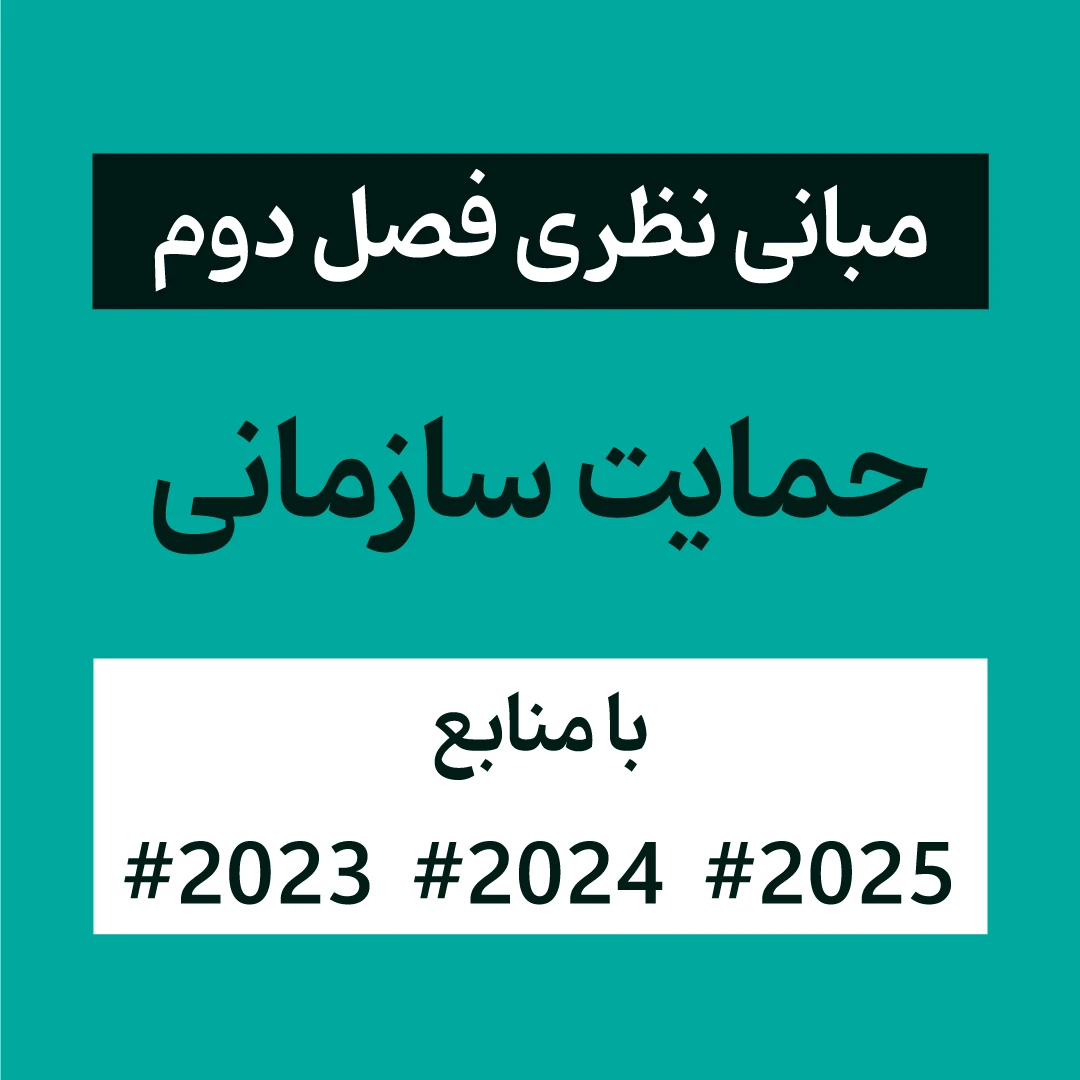
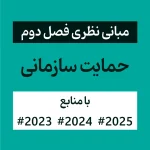
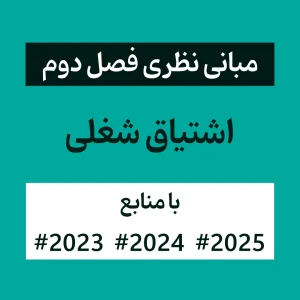
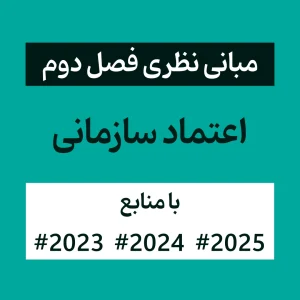
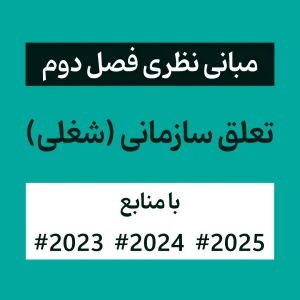
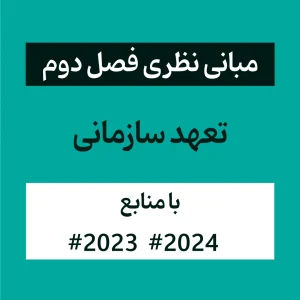
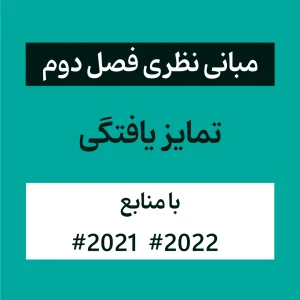

0دیدگاه